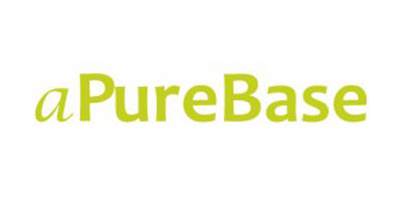
Are you looking to increase your online visibility and attract more organic traffic to your website? In today's digital landscape, having a strong search engine optimization (SEO) strategy is critical for businesses of all sizes. Implementing expert-recommended SEO best practices can significantly improve your website's ranking on search engine results pages (SERPs) and drive more targeted traffic to your online platform. In this article, we will explore effective SEO techniques and strategies that can boost your online visibility and help you reach your target audience.
1. Introduction
In the rapidly evolving digital realm, establishing a robust online presence has become paramount for businesses striving to flourish. With millions of websites vying for attention, search engines like Google play an important role in directing traffic to relevant and valuable content. Implementing effective SEO strategies can help you improve your website's visibility and rank higher in search engine results, ultimately attracting more visitors and potential customers.
2. Understanding SEO
2.1 What is SEO?
SEO, or
search engine optimization, is the practice of optimizing your website and its content to improve its visibility on search engine results pages. It includes various techniques and strategies that aim to make your website more accessible to search engines and valuable to users.
2.2 Importance of SEO for online visibility
SEO is important for businesses looking to establish a strong online presence and increase their visibility. By implementing SEO best practices, you can increase your website's chances of appearing on the first page of search engine results, where the majority of users click and explore.
3. Keyword research and optimization
3.1 Conducting keyword research
In the realm of SEO, keyword research holds significant importance as a foundational step in any successful strategy. This involves identifying keywords and phrases that your target audience might use when searching for information related to your business or industry. By understanding these keywords, you can optimize your website's content to align with users' search intent.
3.2 Keyword optimization techniques
Once you have identified the relevant keywords, it is necessary to optimize your website content accordingly. This includes your title, title, meta tags, and keywords naturally throughout.
The body of your content. However, it is important to avoid keyword stuffing and maintain the natural flow of your writing.
4. On-page SEO optimization
4.1 Customizing meta tags and descriptions
Meta tags and descriptions are HTML elements that provide search engines with information about your web page. Optimizing these elements with relevant keywords and attractive descriptions can improve your click-through rate and increase your chances of ranking higher in the SERPs.
4.2 Creating high-quality and engaging content
Content is king when it comes to SEO. Creating valuable, informative, and engaging content not only helps attract and retain visitors but also signals to search engines that your website is authoritative and relevant. Include relevant keywords naturally within your content and ensure it is well structured with proper headings and subheadings.
4.3 Improving website speed and performance
Website speed is an important ranking factor and influences user experience. Optimizing your website's loading time, minimizing file sizes, and using caching techniques will improve your website's performance. This, in turn, increases user satisfaction and encourages search engines to rank your website higher.
5. Off-page SEO techniques
5.1 Building high quality backlinks
Backlinks, also known as inbound links, are invaluable connections that originate from external websites and direct visitors to your own website. They are an essential off-page SEO factor. Direct your attention towards acquiring premium backlinks from reputable and pertinent websites within your industry. These backlinks act as a vote of confidence for your website, indicating its credibility to search engines.
5.2 Benefits of social media for SEO
Social media platforms offer a great opportunity to increase your online visibility and reach a wider audience. By creating shareable content and engaging with your audience on social media, you can increase brand exposure and attract more traffic to your website. Social signals from these platforms can also have a positive impact on your SEO efforts.
6. Mobile optimization
6.1 Importance of Mobile-friendly websites
In the present era dominated by mobile technology, it is imperative for businesses to have a website that is mobile-friendly. The surge in internet traffic originating from mobile devices has prompted search engines to give priority to websites that offer seamless mobile experiences when determining their rankings. Make sure your website is responsive, loads quickly on mobile devices, and provides a smooth user experience.
6.2 Mobile SEO best practices
Optimizing for mobile SEO involves several practices, such as using responsive design, optimizing images for mobile devices, and improving mobile site speed. Additionally, take advantage of features like Accelerated Mobile Pages (AMP) to further boost your website's mobile performance.
7. User experience and technical SEO
7.1 Enhancing user experience (UX)
User experience plays an important role in SEO. A website that provides a smooth, comfortable, and enjoyable user experience will have a low bounce rate and high engagement metrics, which is favorable for SEO. Focus on factors such as website navigation, page layout, readability, and overall accessibility to create a positive user experience.
7.2 Technical SEO checklist
Technical SEO entails optimizing technical elements of your website to enhance its visibility and crawlability for search engines. This includes optimizing your website's XML sitemap, improving the site's architecture, using structured data markup, and fixing any crawl errors or broken links.
8. Local SEO strategies
8.1 Importance of local SEO
For businesses aiming to reach a local audience, incorporating local SEO strategies is crucial. Local SEO helps businesses appear in local search results when users are searching for products or services in their specific geographic area. This includes optimizing your website for location-based keywords, creating local business listings, and managing online reviews.
8.2 Optimization for local searches
To optimize for local searches, make sure your business information is consistent and up-to-date throughout.
Relevant directory and review platforms. Encourage your customers to leave reviews, as positive reviews can increase your local search rankings. Additionally, consider targeting location-specific keywords in your content and optimizing your Google My Business profile.
9. Measuring and tracking SEO success
9.1 Key performance indicators (KPIs) for SEO
To measure the effectiveness of your SEO efforts, it's important to track key performance indicators (KPIs). This can include organic traffic, keyword rankings, conversion rates, bounce rates, and more. By regularly monitoring these metrics, you can identify areas for improvement and make data-driven decisions to optimize your SEO strategy.
9.2 Using SEO analysis tools
There are many SEO analytics tools available that can provide valuable insight into your website's performance. Tools like Google Analytics and Google Search Console provide data on organic traffic, keyword performance, user behavior, and other important SEO metrics. Use these tools to gain a deeper understanding of your website's visibility and make informed optimizations.
10. Stay up-to-date with SEO trends
10.1 Continuous learning and adaptation
With search engine algorithms and best practices constantly changing, SEO is an ever-evolving field. It is important to stay updated with the latest trends and algorithm updates. Engage in continuous learning through reputable industry blogs, forums, and webinars to ensure your SEO strategies are aligned with current best practices.
10.2 Following industry experts and publications
The following industry experts and respected publications can provide valuable insight and guidance for your SEO efforts. Stay in touch with SEO influencers, attend industry conferences, and subscribe to trusted SEO publications to stay informed about the latest strategies and trends in the field.
Increasing your online visibility through effective SEO practices is critical to the success of your
website and business. By implementing expert-recommended SEO strategies such as conducting thorough keyword research, optimizing page elements, building quality backlinks, and focusing on user experience, you can improve your website's ranking on by implementing effective SEO strategies, businesses can achieve higher rankings on search engine results pages (SERPs) and drive targeted organic traffic to their websites. Remember to stay up to date with the latest SEO trends and constantly analyze your SEO performance to make data-driven optimizations.
FAQs
Why is SEO important for online businesses?
SEO is essential for online businesses as it helps improve their visibility in search engines, attract organic traffic and increase brand exposure.
How can keyword research benefit my SEO strategy?
Keyword research helps you identify the words and phrases your target audience uses when searching for information, allowing you to optimize your content and improve its relevance to user queries.
Are backlinks still important for SEO?
Yes, backlinks remain an important off-page SEO factor. High-quality backlinks from authoritative websites can increase your website's credibility and improve search engine rankings.
How can I measure the success of my SEO efforts?
You can measure the success of your SEO efforts by tracking key performance indicators (KPIs) such as organic traffic, keyword rankings, conversion rates, and user engagement metrics.
What should I do to stay up to date with SEO trends?
To stay up to date with SEO trends, engage in continuous learning through industry blogs, forums, and webinars. Follow reputable SEO experts and subscribe to trusted SEO publications for the latest insights and strategies.
















